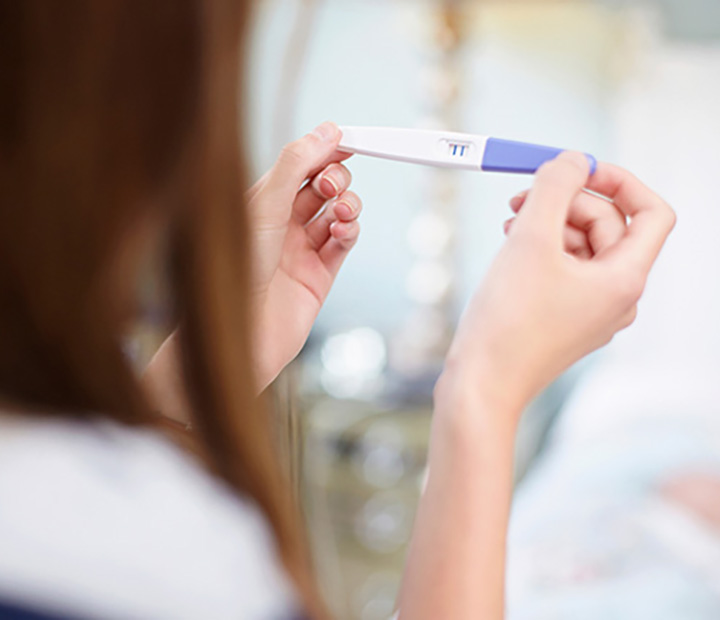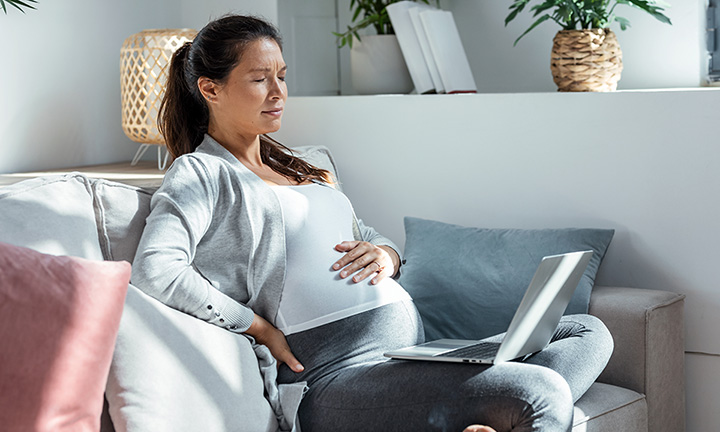
How to Cope With Constipation During Pregnancy
Constipation is a common and often uncomfortable part of pregnancy, affecting many expectant parents. Hormonal changes—especially rising progesterone—slow digestion by relaxing the intestinal muscles. The growing uterus can also put pressure on the digestive tract, making things more sluggish. On top of that, iron supplements often prescribed during pregnancy may contribute to constipation.
Here are a few simple pregnancy constipation home remedies to help find relief:
Constipation can start early in pregnancy and continue throughout, but understanding the causes and knowing how to manage it can bring welcome relief. In this article, we’ll explore practical tips for constipation in pregnancy and provide strategies for immediate constipation relief during this time, helping you stay comfortable and regular.
What Is Constipation During Pregnancy?
Constipation during pregnancy refers to infrequent, difficult, or painful bowel movements. It is characterized by having fewer than three bowel movements per week, passing hard or lumpy stools, and experiencing straining or discomfort during defecation. These symptoms can be common during pregnancy due to hormonal fluctuations and the physical changes occurring during this period.
When Does Constipation Start in Pregnancy?
Constipation can begin at any stage of pregnancy but is particularly common during the first trimester and third trimester. In early pregnancy, elevated progesterone levels can slow down the digestive system, leading to constipation. Later in pregnancy, the growing uterus may exert pressure on the intestines, further contributing to digestive slowdowns.
How Common Is Constipation During Pregnancy?
Constipation in pregnancy is a common issue, with studies indicating that around 16% and 39% of pregnant people experience this condition. Read on to discover what factors can contribute to constipation during pregnancy, including hormonal changes, dietary habits, and physical activity levels.
Pregnancy Weight Gain Calculator
Fill out your details:
What Causes Constipation in Pregnancy?
Constipation can occur at any time, but you might be more prone to it during later pregnancy stages, like the third trimester. So, why does constipation happen during pregnancy?
Signs of Constipation During Pregnancy
Recognizing the signs of constipation during pregnancy, from pain when passing a stool to infrequent bowel movements, can help in managing this condition effectively.Key indicators include:
Contact your healthcare provider if you experience blood in your bowel movement or black stools while pregnant.
Is Constipation a Sign of Pregnancy?
Constipation might be an early pregnancy symptom for some people. It's often due to hormonal changes, especially increased progesterone levels. These changes can result in constipation. However, constipation isn't a definitive sign of pregnancy, as it can also stem from diet, stress, or illness.
Other early signs of pregnancy that may accompany constipation include missed periods, morning sickness, fatigue, tender or swollen breasts, or frequent urination.
If you’re constipated and think you may be pregnant, it’s best to take a pregnancy test to confirm.
How to Prevent and Treat Constipation During Pregnancy
Having infrequent bowel movements or stools that are difficult to pass can be quite uncomfortable even at the best of times, but these symptoms of constipation can be even more unpleasant when you’re pregnant and dealing with a host of other aches and pains.
You may wish there were miracle home remedies, or a medical formula, for immediate constipation relief during pregnancy, but unfortunately, there isn’t. Instead, focus on changes you can make to your diet and levels of activity, which may get things moving in time.
Here are some measures you can take to help prevent or relieve constipation during pregnancy:
Medication for Constipation
If you’re finding that the lifestyle changes listed above don’t work for you, turn to your healthcare provider. Your provider may recommend one of these over-the-counter medications for you during pregnancy, such as a stool softener, which can help you pass hard stools. But it’s important to remember that these are not a cure for constipation:
Don’t use any of the above medications without consulting your healthcare provider first.
Potential Complications of Constipation
If you've been dealing with constipation for several weeks or more, it might be chronic. Chronic constipation can lead to the following complications:
To help avoid complications, it’s safest to get in touch with your healthcare provider at the first signs of constipation or pain.
When to Contact Your Healthcare Provider
If you’re experiencing constipation during pregnancy and wondering when to worry, contact your healthcare provider if you notice the following:
FAQS AT A GLANCE
To prevent or treat your constipation during pregnancy, the best way is to adjust your lifestyle by trying the following:
- Drink plenty of water
- Get moving with some daily exercise
- Eat high-fiber foods, such as fruits, vegetables, whole grains, and beans.
Consult your healthcare provider if your constipation lasts longer than 3 weeks.
The Bottom Line
Constipation can be a pain in the bottom (literally! ), but try not to let it ruin your last few months of pregnancy! Talk to your healthcare provider, and consider some pregnancy home remedies along with the lifestyle changes we’ve listed in this article. In time, things will get moving down there, and you can get back to more enjoyable tasks such as shopping for baby gear, decorating your baby’s nursery, or even just putting your feet up for a bit.
One thing to keep in mind is that, at the other end of the spectrum, you may experience diarrhea from time to time during your pregnancy. You should always mention this to your healthcare provider, especially if you suspect it may be caused by something like food poisoning or a tummy bug.
Whether you’re in early pregnancy or your little one is about to arrive, download the Pampers Rewards app for exclusive baby education and rewards on your future diaper purchases.
- American College of Obstetricians and Gynecologists. Your Pregnancy and Childbirth: Month to Month, 7th ed. (Washington, DC: American College of Obstetricians and Gynecologists, 2021).
- American Pregnancy Association. Constipation During Pregnancy
- Cleveland Clinic. Pregnancy Constipation
- Mayo Clinic. Constipation
- Mayo Clinic. First-trimester pregnancy: What to expect
- Mayo Clinic. Is it safe to take stool softeners to treat pregnancy constipation?
- Mayo Clinic. Pregnancy Diet: Focus on these essential nutrients
- Mayo Clinic. Symptoms of Pregnancy: What happens first
- March of Dimes. Common Discomforts of Pregnancy
Read more about Pregnancy
Related Articles
Join a World of Support
through Pregnancy and Parenthood.
TRACK WITH TOOLS
LEARN WITH EXPERTS
GET REWARDED














